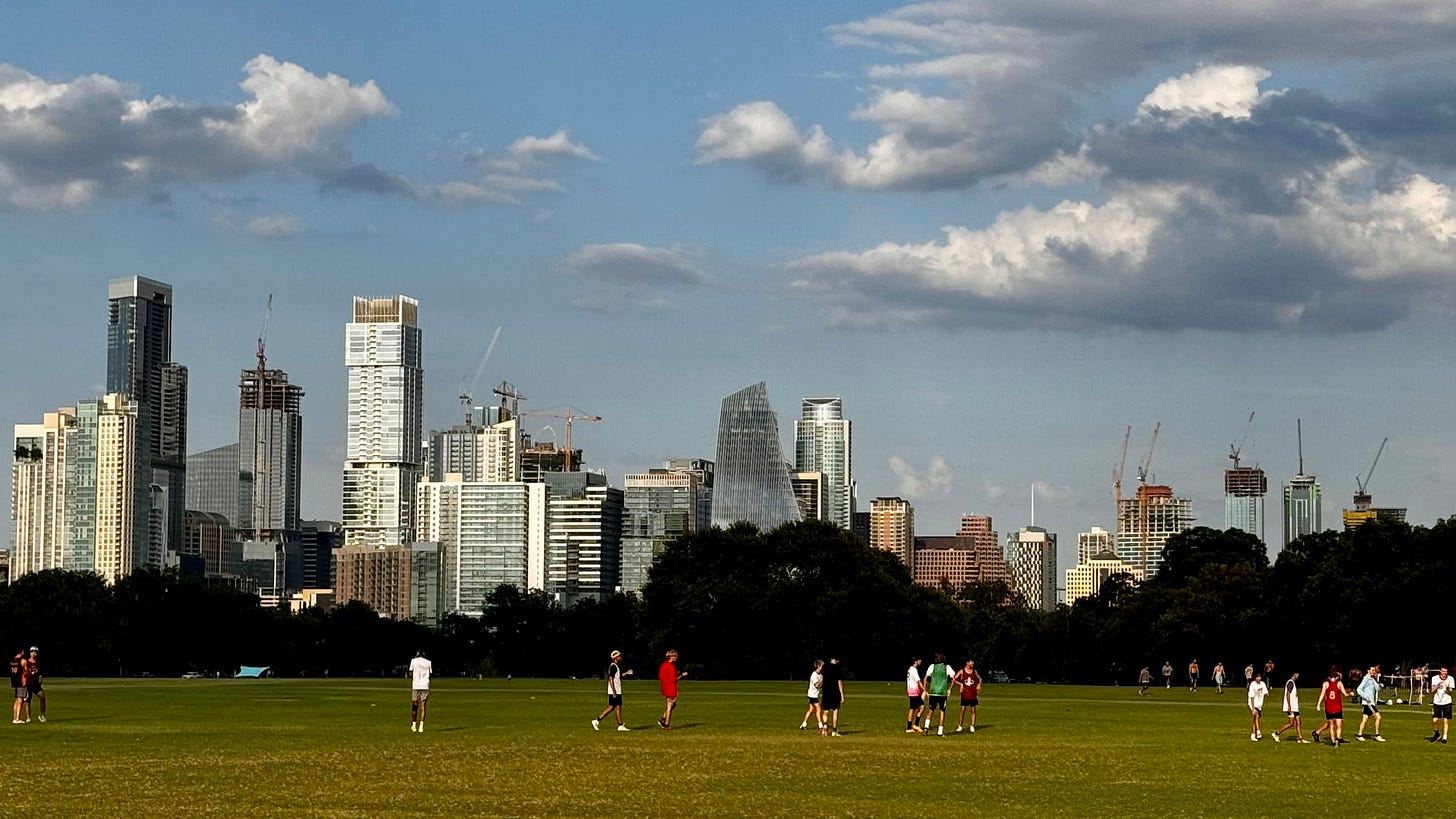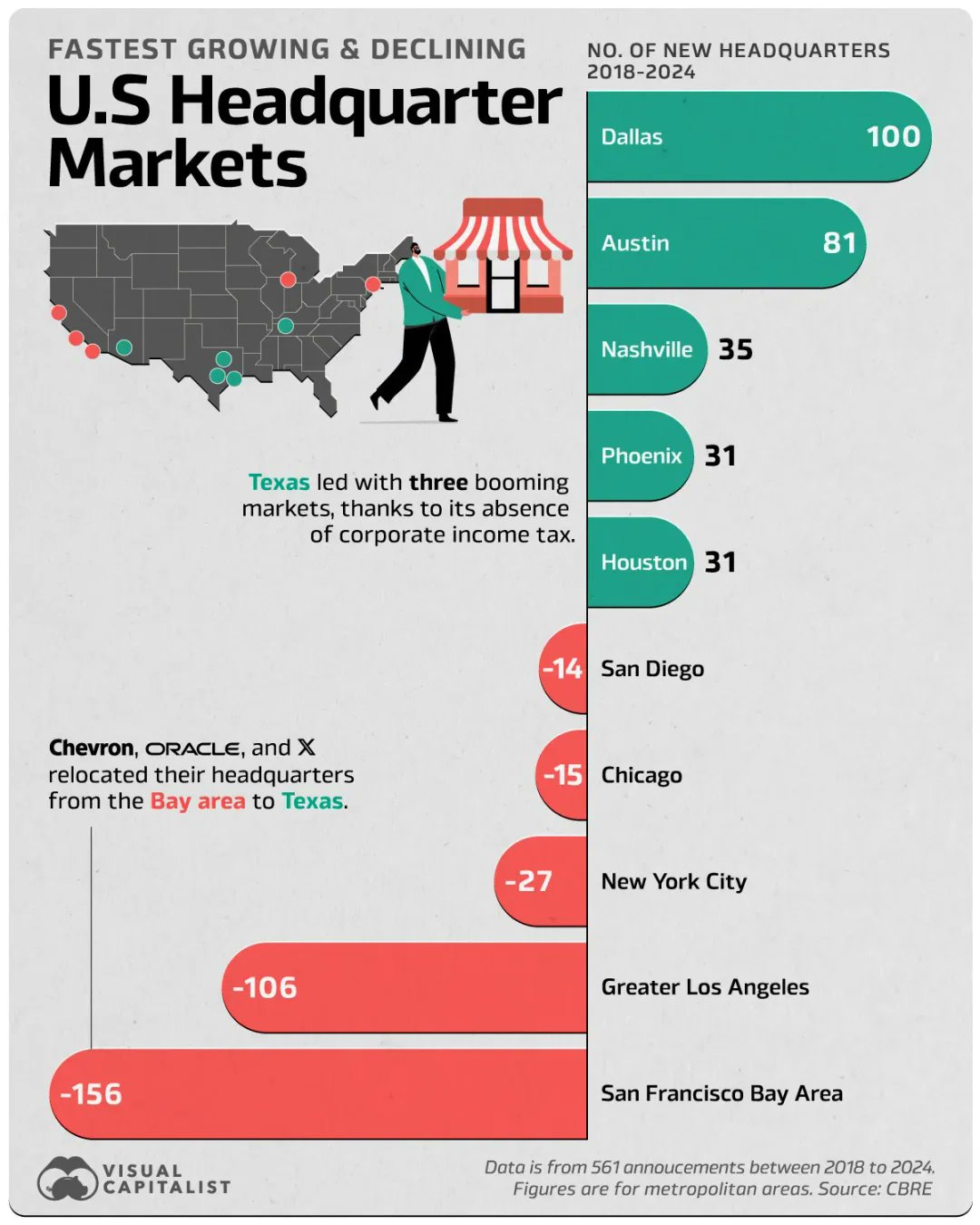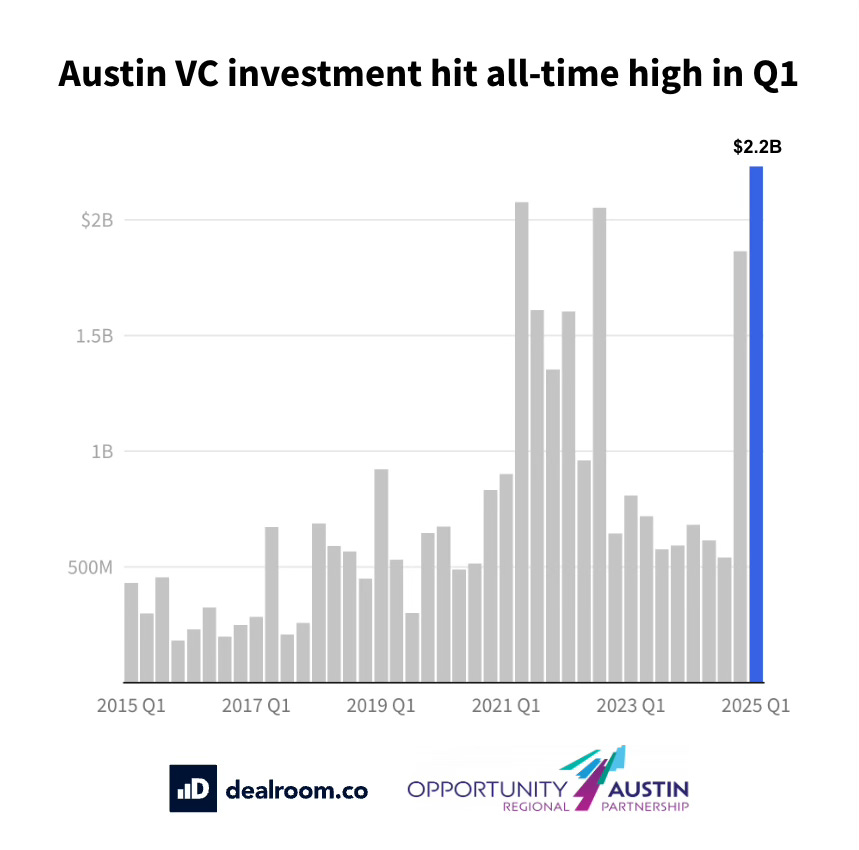Austin isn't "Done." It's Just Getting Started
The tech scene here has its roots in prior decades, but we're still just getting started
In perhaps one of the worst takes in journalism recently, another author has taken up the “Austin is so over” flag and run it up the hill. This time it is the Wall Street Journal’s Isabelle Bousquette in a piece titled “Austin’s Reign as a Tech Hub Might be Coming to an End. But it isn’t the first time someone has declared Austin “over”.

Is Austin over, this time? Not as long as the food and music are this good.
It happens. People move to Austin and are, sometimes, disenchanted, and then write a hit piece about it. It happened a couple of years ago (2023) as a few disaffected California imports decided to decamp Austin back to the West Coast (or the East Coast). It happened several times in the preceding decade as various people who moved to Austin decided it wasn’t for them. It happened in 2012 when Uber and Lyft pulled out of operating here (we rolled out a local company Ride Austin in weeks and never missed a beat). It also happened during the dot-com bust, as techies fled Austin for jobs on the coasts.
Austin has more than doubled in population since the tech bubble popped in 2001. Many of those who left came back to raise families. Many new techies have arrived. There’s something about tacos, music, and tech that just go well together.
It seems Austin is still attracting an oversized share of talent to tech companies and startups.
That’s just it. Austin isn’t for everyone. It certainly isn’t San Francisco or Silicon Valley, and it isn’t New York City - and if you’re coming here for those things you’ll be disappointed. There’s no city on earth that is going to appeal to everyone. But Austin is one of those places that has a vibe and personality - and if you don’t feel in tune with it, you’ll probably move on. A Bay Area friend was reminiscing about having lunches with coworkers at BJ’s Restaurant in Cupertino. No one in Austin would ever reminisce about a national chain restaurant here (though we do have funny memes about the Chili’s on 45th and Lamar). We’d be talking about Taco Deli, Torchy’s, Hopdoddy, Ski Shores, Styles Switch, Franklin’s, Peached Tortilla, or a million other local places that started here. Because in Austin, the restaurant business is a startup business too.
Aloha Spirit, Austin-Style (Keep Austin Weird)
On a visit to Maui for vacation, our guide for a bike ride down the volcano (Mount Haleakala) was asked by one of the folks on our tour - “with all these people moving to Maui, or visiting tourists, how do you maintain that Aloha spirit here?” It was a great question.
His answer: “if you want to live in Maui, you have to have Aloha Spirit. Everyone has to have it. If you don't have it, then get the **** out.” And he said it with a smile. Lots of subtle implications there, but you get the idea immediately.
Austin isn’t quite that edgy about our Keep Austin Weird vibe, but we go to local restaurants. National chains struggle here. We shop local. The expensive luxury brands mostly depend on tourists for their dollars. We love our idiosyncrasies - from all of our mispronounced German and Spanish place-names, to our foods and drinks (Migas anyone? Mexican Martini?), to our love of Eeyore’s birthday.
And the marketing works - in that a. very “normal” person like me actually appreciates that there are others in Austin that make it “weird”. I like to jokingly refer to it as “keeping it weird in Austin,” because it is a more active, participatory experience for some!
So many of these people… didn’t actually move to Austin…
One problem with these hot takes is that often the person writing them never actually moved to Austin…
If you moved to “Austin” and lived in Dripping Springs, I have news for you, you didn’t move to Austin. That isn’t a knock against Dripping Springs - a town nearby that you live in if you explicitly do not want to live in Austin, it has its own vibe and culture. But if you’re wanting to be in the startup mix, you live central, or just east-of or west-of central, or north-central. You can live further out, but the bulk of tech is happening in this area, and yes, I can name dozens of examples further south or east or north or west. But if you’re looking for “where is it happening” - that’s where it is happening. There’s good demographic data to look at that Opportunity Austin provides if you doubt me.
I’d say there’s a big difference between living in Gilroy and San Francisco. But someone in Texas who has never been there might not know that.
Losing our Luster?
So why does the WSJ think Austin is losing its luster? There must be some reason, right?
Nearly five years after Austin, Texas, became a darling of the tech industry, luring companies out of California with the promise of lower taxes and a better quality of life, the city is now bleeding tech talent that is flowing back to the coasts.
Except, just 15 days later, Dallas Business Journal reports:
DFW gained 100 headquarters from 2018 to 2024, according to the report by online publisher Visual Capitalist. Austin ranked second with 81 during that period. Nashville ranked third with 35, followed by Phoenix and Houston with 31 new headquarters apiece in the five-year timeframe.
So Austin added 46 more headquarters than third place Nashville. The biggest loser in the country was San Francisco with the most corporate HQ exits (156). So… is this a narrative violation? It runs precisely counter to the WSJ article. Did we lose our luster? Or did the author at the WSJ lose the plot for clicks?
Now, the WSJ isn’t wrong that return-to-office initiatives have caused some folks to depart from Austin to work in Corporate HQ (I have at least one friend so affected). But that’s hardly a widespread issue. Most of the big tech companies have offices in Austin, so usually the answer is - go to your local office.
Another point of criticism in the article was about tech events - in 2022. Looking at how in-person events were doing in Austin in 2022 is probably not the best year for evaluation. They’re not wrong - there weren’t a lot of tech events in 2022 anywhere - they’re just omitting critical context you’d expect from a journalist. There were even fewer events in NYC in 2021, by the way, and SF, who had strict rules about events during Covid, from which this person decamped to Austin. These are allegedly the places the interviewed contributors were comparing, and the years of comparison… I can’t make it make sense.
But that has all changed in 2025 and people are back out of their home office caves.
Fundraising Data says our Best Years are Ahead of us
Moreover, Austin has recently put up the best Q1 ever for fundraising ($2.2B) and has already raised as much in 2025 as the ecosystem did in all of 2024 - according to data shared by Opportunity Austin. And according to local data, tech employment is up year-over-year (again!) this year - both in startups *and* in big tech.
What this means is that we have many years of being relevant in tech ahead of us. Fundraising is a pre-cursor to building out scale businesses and startups.
Jason Scharf - who adoptedAustin a few years ago, and who has also become one of our biggest boosters - shared that Texas also benefits from $71B of defense spending - including Austin as the HQ of various futures commands (thanks in large part to the efforts of Josh Baer and Capital Factory crew). Austin is 5th fastest-growing Metro for jobs.
The Future
It’s hard to think the future isn’t bright when you see the energy behind “morning coffee” events in Austin as reported by the Austin Business Journal here:
The hottest new clubs in Austin continue to revolve their location, serving up lattes and matcha to those who flock to coffee bars at 10 a.m. and are ready to dance to DJs spinning music.
Around January, these events started hitting the city, and with it came sizable revenue and recognition for businesses. Essentially, some Austinites are trading their hangovers for morning jitters, wanting to partake in club culture while bypassing the nuisance of staying up late and drinking. Event coordinators such as Latt3 and The Mushroom Cowboy are creating pop-ups at coffee shops and other venues where hundreds, sometimes a couple of thousands, of people are turning up.
Look, maybe coffee and DJs isn’t your thing - but this isn’t the vibe of a city that’s throwing in the towel and going home.
My view is that Austin has been growing, and continues to grow - nearly doubling every 20 years over a long arc of time (over 100 years). You can question why Austin is an “it” city that has that “it” factor - but it undoubtedly does have it. Is it the tacos? the music? the weather? the tech? the people? our spirit? I don’t know. But maybe it is just everything. I’ve been proud to be part of this town’s tech identity for the last 30+ years, and now I’m hoping to help companies through advisory and board to pass on what I’ve learned.
At the recent ATC Hall of Fame event, some of our tech leaders from the 80’s and 90’s reminded us that as they were succeeding, they were looking at other younger tech executives in town and asking them how they were going to give back to the community, or help other tech execs. They set an expectation that as you climb up, you reach a hand back down to help someone else up the ladder. That spirit is still strong in Austin today.
If you enjoyed this post, I have to say that Ryan Puzycki wrote an very good, balanced piece on the same sets of news and hyperbole on his blog, which you can find here: “Has Austin Lost Its Violet Crown?”:
If Austin punches above its weight culturally, it makes sense that others like to punch back. So, data be damned, the WSJ article is not going to be the last of its kind—surely, Vanity Fair and Harper’s will get in the game at some point. Incidentally, while researching this essay I discovered that The New York Times had made its own recent contribution to the genre. The lesson here is that sweeping narratives of cities, whether cast as stories of urban doom, gloom, or boom, hardly tell the whole story.
His Substack posts are worth a follow.
One more thing…
In other Austin news, Austin Technology Council has a new chair - Raymond Kunik is taking the baton from me in that role for ATC. It’s a big win for ATC to have someone with Ray’s pedigree and role at 3M step into this leadership role. ATC will continue to advocate for Austin’s tech community as it has for more than 30 years.. We have a lot to celebrate as you can see above, and more to come. Despite more than 30 years in the game, ATC’s CEO Thom Singer also believes Austin’s best days are ahead of us with the next generation of tech leaders.
It has been an honor to serve this organization as chair for the past few years. We’re so fortunate to have his leadership and Thom’s leadership. There’s so much to celebrate in our community, and so much to build!






